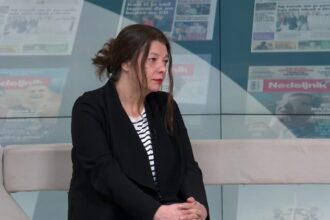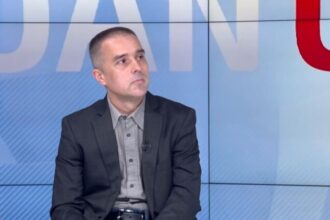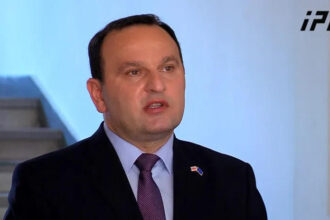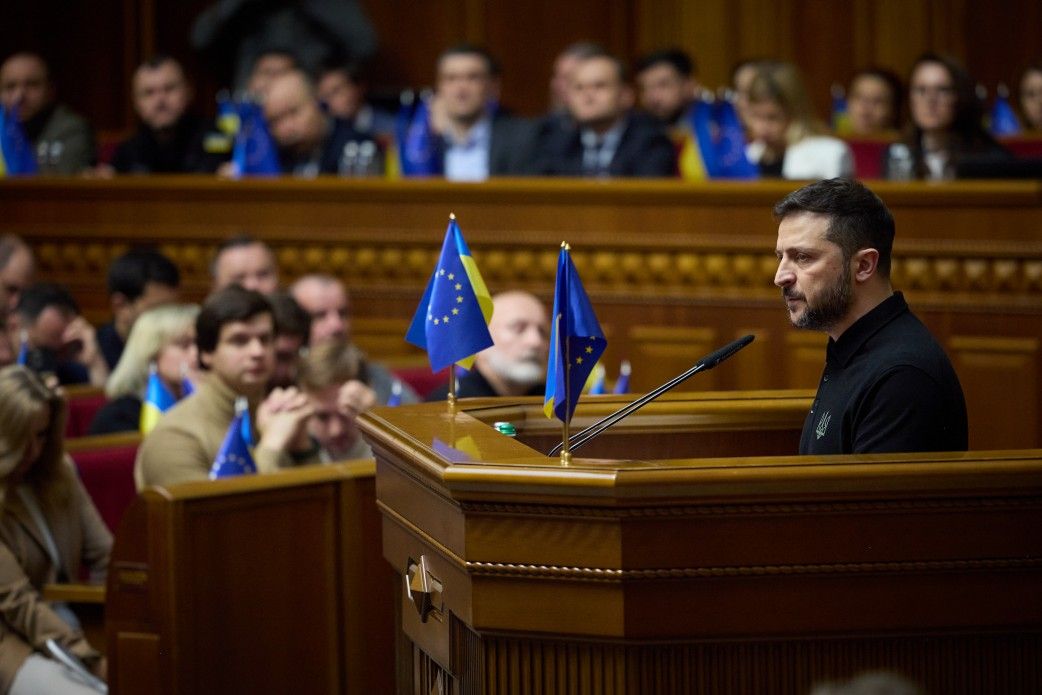This is issue #78 of the weekly newsletter “Ukrainian Economy in Brief”, published by Ukrainian lawmaker Yaroslav Zelezniak, and covers events from October 21 to October 27, 2024. The digest highlights the steps taken by the Ukrainian parliament in relation to business, economy, and international financial programmes.
The Kyiv Independent republishes with permission.
The memorandum of understanding with the IMF includes benchmarks and soft commitments
In the second reading, the Ukrainian parliament will examine the reform of the accounting chamber and the draft law for the 2025 State budget.
During the Verkhovna Rada‘s meetings, which are scheduled for October 21-31, Ukraine’s parliament will examine the draft law #10044 d on reforming Ukraine’s Accounting Chamber. The budget committee approved the text in second reading last weekend.
The draft law is a benchmark for the latest memorandum between the United States and the International Monetary Fund. It also includes an obligation to provide financial assistance from the United States by the end of October.
As we reported in Issue 73, the draft law proposes a transparent and competitive selection of chamber members, with the participation and decisive vote by international experts. It also suggests extending the mandate to all public finance and strengthening its independence.
The budget committee will also review all the amendments that were submitted by legislators. The meeting of the Committee was scheduled for October 28.
The results of the voting for new members of Bureau of Economic Security Civil Oversight Council must be announced by Monday.
On October 27, a competition online for the new Bureau of Economic Security Civil Oversight Council closed. The competition was attended by 44 candidates. The Bureau of Economic Security had to announce and publish the list of nine winners on its official website by October 28. The Cabinet of Ministers will then officially appoint the nine winners to a new Civil Oversight Council of ESBU. This council will be in place for the next two-years.
The results were not yet announced at the time this newsletter was sent on October 28.
The draft law for a tax hike has not been signed in two weeks.
The draft law #11416 d on tax increases, which was deemed urgent by the Presidential Office, has not been signed since Oct. 15. Volodymyr Zelensky appears to be signing the bill, so that it will come into effect on November 1. This will prevent companies from creating legal conflicts when the increased military levies are only payable for a few days in October.
Obligations of the EU
The President signed two draft laws that were required by the Ukraine Plan.
The President signed last week the draft law #10143, which amends the bankruptcy code in order to improve the procedures and bring them into line with EU legislation. This bill is also required to be adopted by the World Bank Development Policy Financing.
The President also signed the draft law #11310, which outlines the fundamental principles of state climate policies.
The deadline for the consideration of a draft law regarding plea agreements has passed.
During the Verkhovna Rada’s meetings scheduled from October 21-31, it will examine the draft law 12039 to improve plea bargaining mechanisms in grand corruption cases.
The deadline for this action expired in September.
As we reported in Issue No. 77, the revised law allows for a shorter sentence than is currently required for cooperation with an investigation by exposing accomplices and compensating for damage. This mechanism cannot be applied to all organizers of corrupt schemes, except in cases where an organizer exposes a second organizer.
Other key economic issues
The President signed the draft law on publishing detailed pricing of SOE construction procurements.
The President signed the Draft Law #11057 regarding changes to the public procurement procedures of state-owned enterprises. The draft law proposes a provision on mandatory publication for each construction contract after public procurement to ensure transparency and prevent inflated pricing.
Zelensky announced cash payment to Ukrainian citizens for local goods.
President Volodymyr Zelensky told the Cabinet of Ministers to allocate government funding for every Ukrainian to receive Hr 1,000 (around $24) by Dec. 1 to be spent on domestically-produced goods or services. Speakers who were to support the initiative had been instructed to explain that the international financial assistance could not be used to fund military purposes and that the initiative was meant to boost domestic consumption.
Yaroslav Zelezniak, the first deputy chairman of Ukraine’s Parliamentary Committee on Finance, Tax, and Customs Policy, is a member of the Ukrainian Parliamentary Committee on Finance, Tax, and Customs Policy. He is also co-chairman of the Ukrainian Chapter for the Parliamentary Networks of the World Bank, International Monetary Fund and the World Bank.
Read More @ kyivindependent.com




